SakenowaRecord your sake experiences and discover your favorites
常きげんJokigen
Flavor Chart®
A chart created from flavor analysis of user comments.

Flavor Tags ®
Tags generated from flavor analysis of user comments.
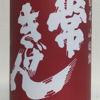
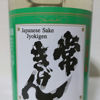
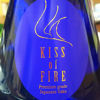
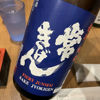
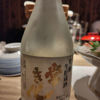
Popular Comments
(*^o^*)🍶🍶🍶🍶
I asked the lady at the liquor store for a good flavor recommendation and bought some 😀.
The taste is light and refreshing, with a gentle sweetness and umami 😚 and a refreshing acidity, with a slight grape🍇 like aroma 😘.
Not the usual gusto sake, but a rounded and rounded sake that is easy to drink 🥳.
Japanese>English
⎛;c*-wha-⎞🍶🍶🍶+
Today we got a cup of Tsunekigen, a local sake from Ishikawa Prefecture 😀.
It's cold today, so I heated it up 🍶.
After all, a cup of sake is only good when it's hot😚💕It has a nice umami taste😊It's a delicious sake with a strong style, the royal way of sake😆👍✨
Japanese>English
(* ̄ ̄)🍶🍶🍶🍶
KISS of FIRE is a local alcoholic drink.
I've seen it on TV commercials sometimes. It's a bit pricey, but I got it from a friend and had it chilled. It's an easy to drink sake without any habits, but it's a little bit quiet and too ordinary. It was a beautiful sake with a beautiful taste.
Japanese>English
Brands from Kano Shuzo
Jokigen黒ゆり
Similar Brands
We analyze the flavors based on everyone's comments and select similar brands.
Location
6 Yokaichimachi, Kaga, IshikawaOpen in Google Maps
Timeline
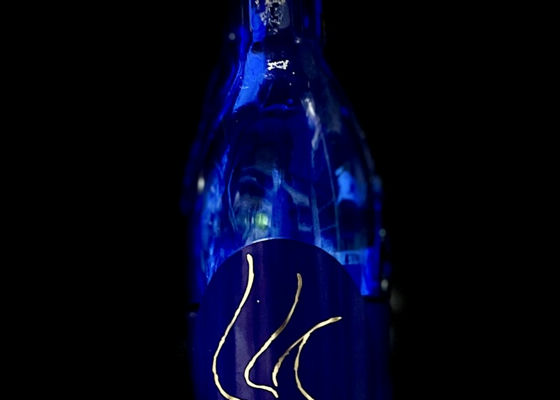
Ha9wnmCMPy
As the sake was chosen as the party sake for the Nobel Prize, it goes well with Western dishes.
This time, it was served with carbonara and ahi jio.
The silky texture and elegant sweetness were a delight to the palate!
Was it a coincidence that the sealed sticker was peeled off and it looked like a hickey?
Aromatic like a flame, a prodigal kiss.
Japanese>English
Jokigenkiss of fire
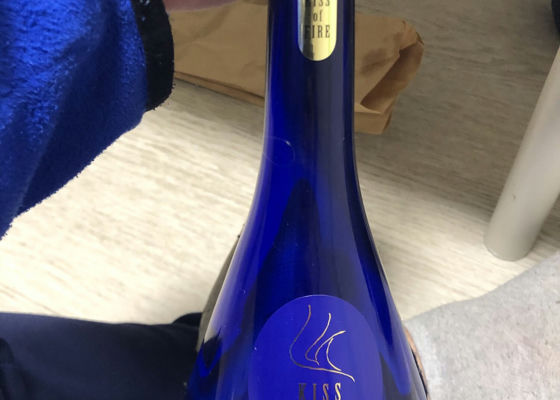
たむ
buy a jacket
easy to drink sweet
Japanese>English
Jokigenキス・オブ・ファイヤー 純米大吟醸
Reika
Easy to drink. Delicious.
Japanese>English
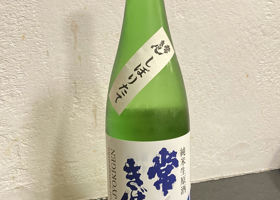
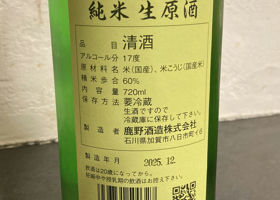
N.Nao
Good fresh aroma
Sourness passes through the nose quickly.
The rice flavor comes through as the temperature changes in the mouth, while the taste is refreshing.
And it goes down the throat with a sharp taste.
It is young but powerful.
Delicious!
Brewed with water from the "Hakusui Well" associated with Rennyo Shonin (soft water).
Japanese>English
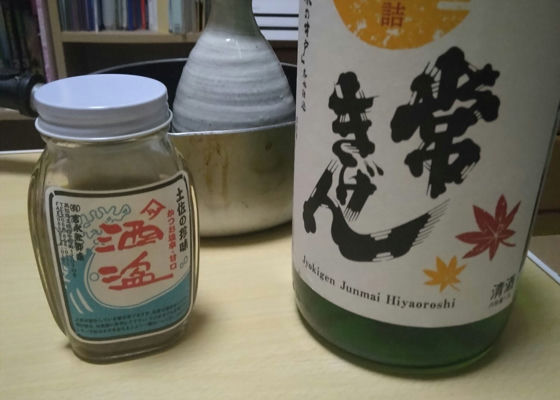
まるわ
Sorry, I was getting carried away.
The other day, I wrote that I was a little short of my usual fare these days, but I want to punch myself in the face for that day.
About a month after opening the bottle, my impression of it has changed drastically. It has a strong, deep, and spicy flavor.
The sake thief, a souvenir from Kochi, is a masterpiece.
It is so good that it steals sake.
Japanese>English
JokigenKISS OF FIRE
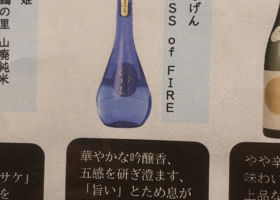
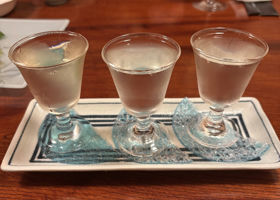

P8DH9QMVnV
3.5/5
Purchased at 1100 yen
Firm on the palate with a light sweet aftertaste.
Personally, I think it is better than hot sake 🍶.
It's better at room temperature or higher than hiya.
Japanese>English
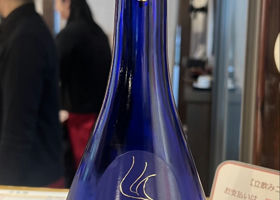
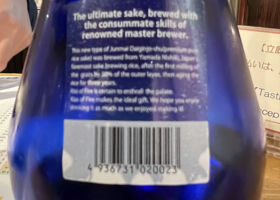
X-Beauty18
Famous as the sake served at Nobel Prize ceremonies!
Easy to drink without any peculiarities...you can feel the dryness of the sake.
It is not as sweet as expected and has a good sake taste!
Japanese>English
JokigenKISS of FIRE
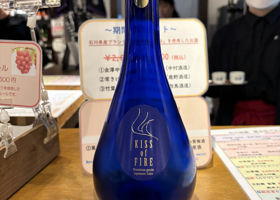
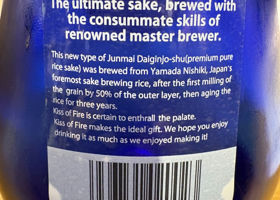

INZO
お燗で
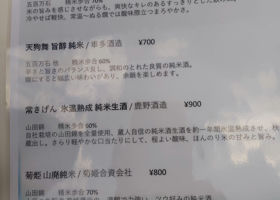
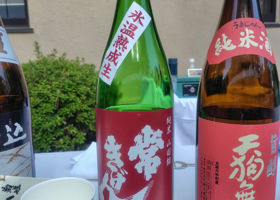
ありあり
Sekigaku, at the morning market in Wajima. Full, soft and nostalgic taste.
Japanese>English
よっしー
record
Delicious.
Japanese>English
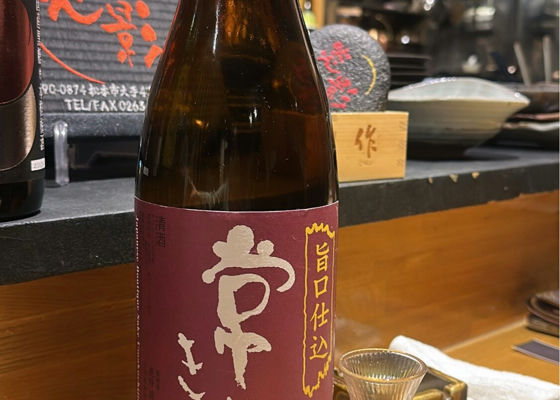
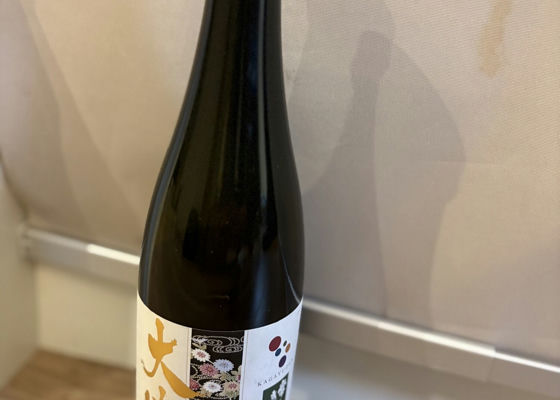
けいやん
I have not been feeling well for a while now, so I was not even excited about drinking sake.
At first I thought it would be sweet and soft to drink because of the sweet aroma, but then the spiciness came in later.
I am looking forward to seeing it mellow a little more when it is exposed to air after tomorrow.
Japanese>English
たかひろ
★★★★☆:4.0
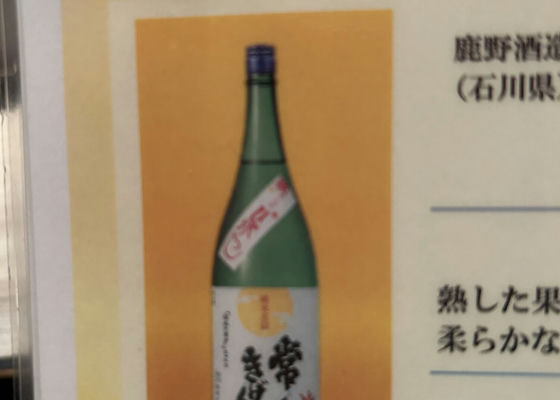
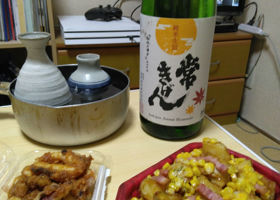
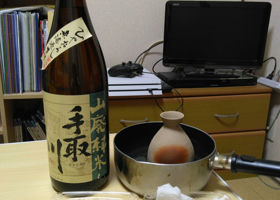
まるわ
Although I am becoming less and less accepting of oily food as I get older,
I feel like eating it on a day when I am exhausted.
Speaking of sake that does not lose to fat
Ishikawa sake. I thought I had no problem with my favorite sake, Jokigen,
I drink this hiyaoroshi every year, but it gets lighter and quieter every year.
Not only Tokigen, but also Tengu Mai and Tetorigawa may have shifted to be easier to drink.
It is a little sad.
Japanese>English